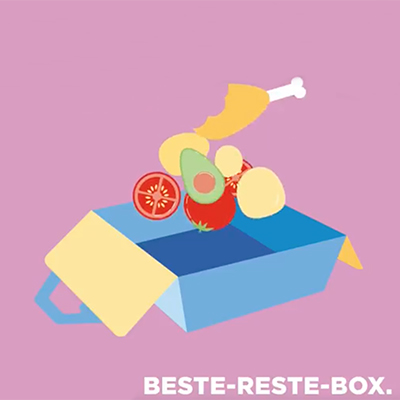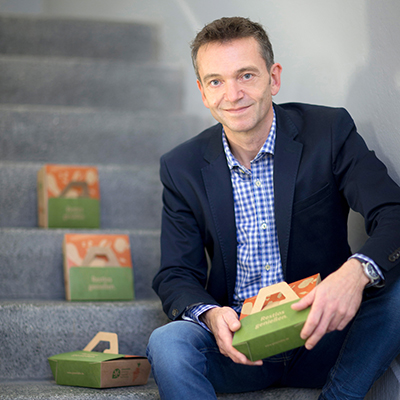
Find sustainable restaurants with Greentable
The non-profit initiative Greentable advocates more sustainability in gastronomy and thus brings it to the table. The platform lists restaurants that use resources responsibly, pay attention to regionality and seasonality when shopping, as well as those that are socially committed. The result is a network of restaurants, cafés, suppliers, producers and consumers who can find out more about "green enjoyment" and exchange ideas. Since it was founded, the initiative has received several awards from the German Sustainability Council.
With the action "Enjoy completely" Greentable is also working with the Federal Ministry of Food and Agriculture to combat the growing problem of food waste. Leftover food from the restaurant visit is packaged sustainably in the so-called best leftovers box for the guests, for the second hunger at home, so to speak. Over 300 restaurants are already part of this campaign and are thus actively campaigning against the problem of food waste.
An admirable initiative that is all committed to more sustainability in the world of gastronomy. We met Matthias, the founder of Greentable, for an interview and asked him our three questions.


What was or is your motivation behind Greentable?
When shopping in the supermarket, we now get a lot of information about the origin of the food. However, when you go out to eat in a restaurant, we rarely know what is on our plate and where it comes from. Many restaurateurs also keep a low profile with other information on sustainable commitment. To change this, the idea of a nationwide platform for sustainable restaurants was born in 2014: Greentable was born. Together with restaurateurs, guests and partners, we want to make the German gastronomy landscape a bit “greener”.
What do you advise our Readersn: What can you do specifically for a better future?
Less meat (and if so, directly from the producer from appropriate husbandry), the vegetables from the farmer, the fruit from the meadow. The shorter the path between harvest or production and the plate, the better. Of course, there will always be ingredients and dishes that cannot be obtained from local sources, or only to a limited extent. But for these, the following applies: Find at least one local (specialist) dealer and pay attention to seals such as fair trade or organic. Not for nothing is one of the top priorities of sustainability: Think globally, act locally.
How do travel and sustainability fit together for you?
We love to travel. Our son is now 11 years old and of course we want to "show him the world". But according to the motto “why wander far away when the good is so close”, we first traveled to Germany in the past. Air travel does not take place every year. When it comes to accommodation, we look for people who communicate their sustainable commitment and try to behave on vacation as we do at home. Since arrival and departure are the biggest problem from an ecological point of view, we adhere to the rule of thumb established by the WWF as far as possible: do not use a plane below 700 kilometers, stay at least eight days up to 2.000 kilometers, and at least 2.000 days from 15 kilometers. The reason is that the airplane emits by far the most greenhouse gases. Trains, buses and cars do better.
More to Green table
More about the campaign "Enjoy completely"






COMMENT